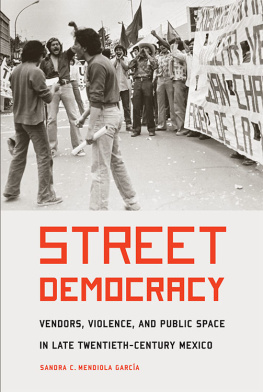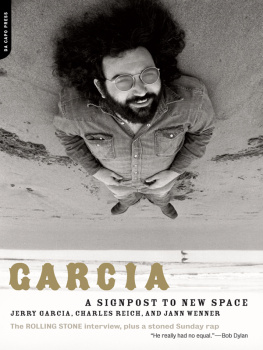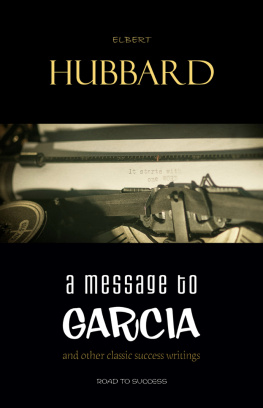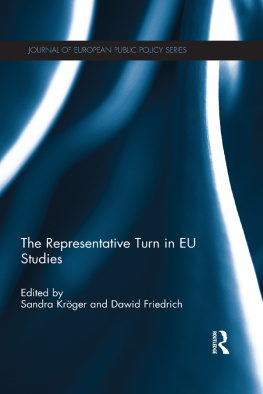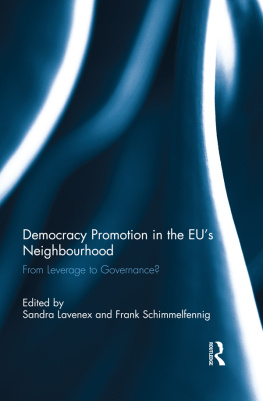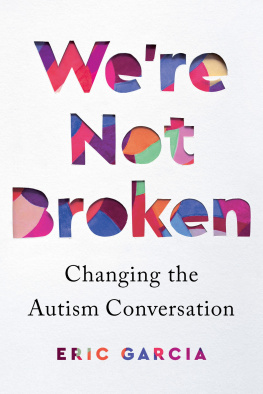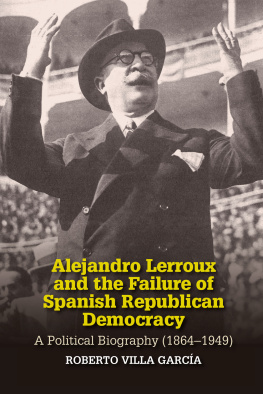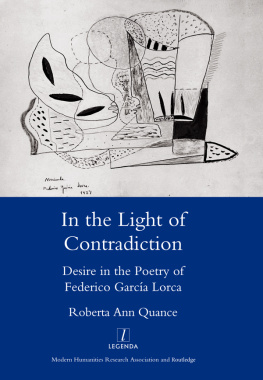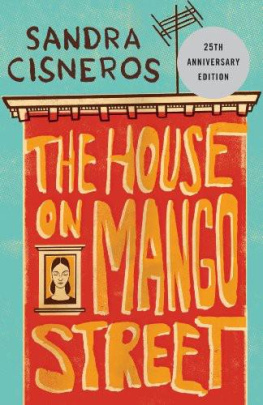Sandra C. Mendiola García - Street Democracy
Here you can read online Sandra C. Mendiola García - Street Democracy full text of the book (entire story) in english for free. Download pdf and epub, get meaning, cover and reviews about this ebook. year: 2017, publisher: University of Nebraska Press, genre: Politics. Description of the work, (preface) as well as reviews are available. Best literature library LitArk.com created for fans of good reading and offers a wide selection of genres:
Romance novel
Science fiction
Adventure
Detective
Science
History
Home and family
Prose
Art
Politics
Computer
Non-fiction
Religion
Business
Children
Humor
Choose a favorite category and find really read worthwhile books. Enjoy immersion in the world of imagination, feel the emotions of the characters or learn something new for yourself, make an fascinating discovery.
- Book:Street Democracy
- Author:
- Publisher:University of Nebraska Press
- Genre:
- Year:2017
- Rating:4 / 5
- Favourites:Add to favourites
- Your mark:
- 80
- 1
- 2
- 3
- 4
- 5
Street Democracy: summary, description and annotation
We offer to read an annotation, description, summary or preface (depends on what the author of the book "Street Democracy" wrote himself). If you haven't found the necessary information about the book — write in the comments, we will try to find it.
Street Democracy — read online for free the complete book (whole text) full work
Below is the text of the book, divided by pages. System saving the place of the last page read, allows you to conveniently read the book "Street Democracy" online for free, without having to search again every time where you left off. Put a bookmark, and you can go to the page where you finished reading at any time.
Font size:
Interval:
Bookmark:
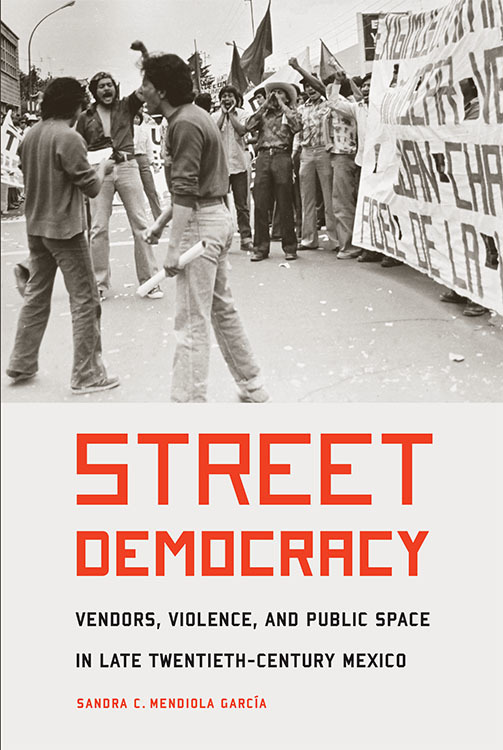
An innovative and highly original book that reveals new findings on the twilight of the PRI rule in Mexico.... [Street Democracy] breaks new ground in the rapidly expanding field of post-1940 Mexico.
Alex Avia, author of Specters of Revolution: Peasant Guerrillas in the Cold War Mexican Countryside
Mendiola Garca nimbly transports us to the streets of Puebla, where everyday men, women, and children redefine their roles from simple peddlers to organized vendors. She expertly traces the shift in organizing tactics and identity politics in response to state repression and the neoliberal bend.
Gabriela Soto Laveaga, author of Jungle Laboratories: Mexican Peasants, National Projects, and the Making of the Pill
The Mexican Experience
William H. Beezley, series editor
Sandra C. Mendiola Garca
University of Nebraska Press | Lincoln and London
2017 by the Board of Regents of the University of Nebraska
Cover designed by University of Nebraska Press; cover image is from the interior.
All rights reserved
Library of Congress Cataloging-in-Publication Data
Names: Mendiola Garca, Sandra C., author.
Title: Street democracy: vendors, violence, and public space in late twentieth-century Mexico / Sandra C. Mendiola Garca.
Description: Lincoln: University of Nebraska Press, [2017] | Series: The Mexican experience | Includes bibliographical references and index.
Identifiers: LCCN 2016042875
ISBN 9780803275034 (cloth: alk. paper)
ISBN 9780803269712 (pbk.: alk. paper)
ISBN 9781496200013 (epub)
ISBN 9781496200020 (mobi)
ISBN 9781496200037 (pdf)
Subjects: LCSH : Street vendorsPolitical activityMexico. | Informal sector (Economics)Political aspectsMexico. | Government, Resistance toMexico. | Vending standsPolitical aspectsMexico.
Classification: LCC HF 5459. M 58 M 45 2017 | DDC 381/.180972dc23
LC record available at https://lccn.loc.gov/2016042875
The publisher does not have any control over and does not assume any responsibility for author or third-party websites or their content.
Para mis padres Celia Garca y Serafn Mendiola
To Chad and Lucia Pearson
Photographs
Maps
Many people helped me research, write, and publish this book. Jeffrey Bortz introduced me to the archives in Puebla, my hometown, in Veracruz, and in Mexico City. He also encouraged me to come to the United States to study history, which changed my life. Mariano Torres enriched his classes with dry humor and introduced me to the first street vendor I interviewed, Doa Rosa, who later introduced me to her stepson, who gave me the phone number of a man nicknamed El Huaraches, a former student who began working with street vendors in the 1970s. Putting aside my shyness, I called El Huaraches, who was one of the kindest people I met during the several years I spent researching this independent vendor organization. Indeed Jos Luis Daz introduced me to at least two dozens vendors and former students who founded the organization that I explore in these pages. At Pueblas municipal archives I had the fortune to meet wonderful women who were tremendously helpful and patient as I requested boxes related to markets and street vendors. Many thanks to all of them, especially Aurelia Hernndez Yahuitl and Roco (Cho) del Carmen Gmez and to the two friends I met there, Rosa Mara Garca Jurez and Janette Gayoso del Valle. Their knowledge and friendship over the years have meant a lot to me. I would like to thank Pilar Pacheco Zamudio, now directing the Archivo Histrico Universitario de la Benemrita Universidad de Puebla, for her help and kindness throughout the years.
In New Jersey life was good thanks to the friendship and support of fellow historians Jennifer Miller, Laurie Marhoefer, Gregory Swedberg, Robert Alegre, Iben Trino-Molenkamp, and Stephen Allen, who since then have listened to me, responded to my questions, and read drafts of whatever I sent them. At Rutgers I had the best advisor, Mark Wasserman, who always believed in and supported my research. Rutgers also became a special intellectual home where I learned much from tremendously smart and caring historians: Temma Kaplan, Gail Triner, Bonnie Smith, Camilla Townsend, Kim Butler, Paul Clemens, Aldo Lauria-Santiago, and Rudy Bell. They are an endless source of inspiration.
I have been very lucky to have great colleagues and friends at two institutions. At the University of Alabama in Huntsville, where I taught for four years, I would like to thank Molly Johnson, Stephen Waring, Andrew Dunar, Christine Sears, Randall Dills, and Evan Ragland. They supported every decision I took and introduced me to their families, who became my own. Special thanks go to Ingrid Reck and Beverly Gentry, who lovingly took care of my family and me. Id also like to thank my wonderful and accomplished colleagues in the History Department at the University of North Texas, especially Jennifer Wallach, Clark Pomerleau, Michael Wise, Robert Citino, Todd Moye, Marilyn Morris, Rachel Moran, Nancy Stockdale, Richard McCaslin, Alexander Mendoza, and Roberto Caldern. They have patiently listened to me, mentored me, and some read several drafts of my work. Thank you all for your unconditional support, warmth, and good humor. Many thanks to the women of La Colectiva at UNT for offering their friendship and for sharing their intellectual pursuits. Special thanks and mucho cario go to Laila Amine, Priscilla Ybarra, and Valerie Martnez-Ebers for reading sections of this book and for their all-encompassing support. Thanks to my students who provided much enthusiasm and insightful comments: Michelle Findlater, Richard Velzquez, Hugo Martnez, Mario Ovalle, Vogel Castillo, Christopher Menking, and Miriam Calixto.
Scholars close and far have provided much wisdom. Thanks to Alicia Re Cruz, Mariela Nuez-Janes, Gabriela Soto Laveaga, Andrew Paxman, Robert Weis, Jaime Pensado, Elaine Carey, Christina Jimnez, Ingrid Bleynat, Jocelynn Olcott, Nara Milanich, Elizabeth Hutchison, Gregory Crider, Christopher Boyer, Susan Gauss, Meredith Abarca, Julie Livingston, Jeffrey Pilcher, Monica Rankin, Gareth Jones, Alexander Avia, and Heather Ann Thompson. Some of them commented on my work in conferences, others read parts of this book and offered very helpful suggestions. Jezy Gray, Amanda Sewell, and Lyndsay Knecht have helped me improve my grammar. Bridget Barry and her amazing team at the University of Nebraska Press have kindly and professionally guided me through the process of publishing this book. Many thanks to Judith Hoover for her thorough copyediting work. I also appreciate the valuable feedback and suggestions I received from the blind readers.
With true generosity several friends have supported me throughout the years, feeding my family, donating airline miles to commute during a very difficult year, and taking care of Lucia when we have needed it the most: Holger Bretz, Anglica Villasana, Paula Gaetano, Michael Thompson, Meredith Buie, Justin Lemons, Deborah Armintor, and Jodi Ismert. I cant thank them enough for providing peace of mind.
Nothing, absolutely nothing would have educated me and given me the opportunities Ive had without the endless love, economic aid, and patience from my now deceased father, Serafn Mendiola Corro, my very alive mother, Celia Garca Gallardo, and my brother, Juan Manuel Mendiola Garca. My father began working at the age of four and finished elementary school only at the age of seventeen. That was the end of his formal education. He worked every day of his life and taught himself several subjects until just before he died in March 2006. He would have been very proud of this book. Since my mother doesnt read English, this is for her:
Font size:
Interval:
Bookmark:
Similar books «Street Democracy»
Look at similar books to Street Democracy. We have selected literature similar in name and meaning in the hope of providing readers with more options to find new, interesting, not yet read works.
Discussion, reviews of the book Street Democracy and just readers' own opinions. Leave your comments, write what you think about the work, its meaning or the main characters. Specify what exactly you liked and what you didn't like, and why you think so.

